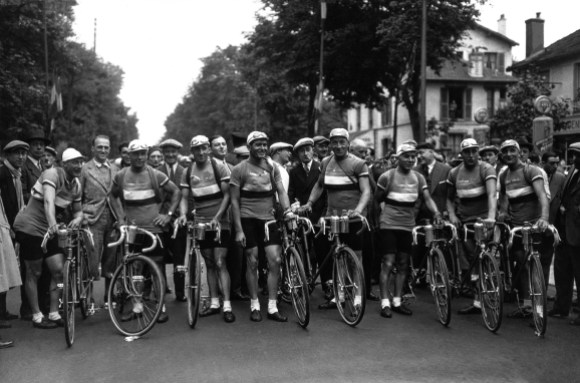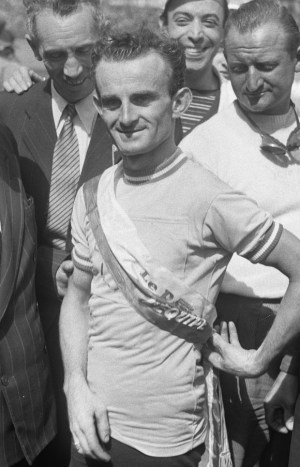
Every year at the Tour de France, competitive bicyclists have a chance to ride in the spotlight. More often than not, these racers’ stories are glorified for a time, only to recede into memory. One story that withstands the test of time involves a surly underdog who registered for the 1947 Tour de France and shocked the world.
Wikipedia tells us that 17-year-old Jean Robic was a slight and unassuming man, so much so that he’d been branded Biquet (“Kid Goat”) by his peers. His bony stature, short temper, and lack of notoriety afforded him almost no media attention throughout the majority of the event.

René de Latour of Sporting Cyclist was one of few journalists to notice him; he described Robic as a “skinny kid…with ears large enough to be of help with a back wind blowing.” Ouch.
Regardless, the newly-married Robic made a promise to his wife that he intended to keep. He aimed high, vowing to return from the Tour de France with a yellow jersey as a hard-won wedding gift. (Winning a single stage in the Tour de France would earn a racer the right to wear the yellow jersey. Ending all six stages in the shortest combined time would win the right to take the jersey home.)
The race’s first half went poorly for Robic as general sentiment proved true: he finished in ninth on the first stage, at 2 minutes and 9 seconds. His second and third stages were similarly unremarkable.
Robic successfully won the fourth stage, but by this time a seemingly insurmountable obstacle loomed over his head. His charge read like the summary of Hollywood sports flick: how could one skinny kid with no yellow jerseys to his name overturn a three-minute deficit, capitalize on the final two stages, and win the Tour de France?
Against all odds, Robic made it happen. The journalist Latour may not have believed it had he not seen it himself. Robic finished the final stage 13 minutes ahead of his nearest competitor, Pierre Brambilla. He also finished an hour ahead of schedule, shocking even the organizers.
Whether or not Biquet’s ears helped him win the day is yet unconfirmed.
Aubrie Johnson, Social Media Associate
Wikimedia Foundation

Can you help us translate this article?
In order for this article to reach as many people as possible we would like your help. Can you translate this article to get the message out?
Start translation